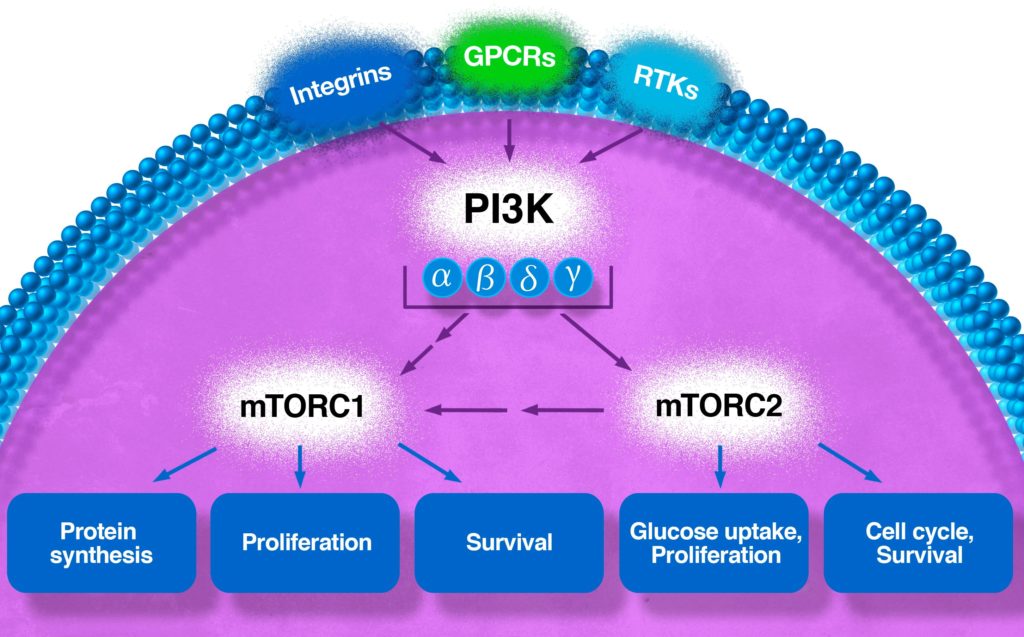The importance of targeting PI3K and mTOR pathway in cancer
Activation of the PI3K/mTOR pathway has been implicated in a wide variety of human cancers including carcinomas of the breast, prostate, lung, endometrial, colon, and ovary, among others.
Activities associated with PI3K involve the regulation of diverse cellular processes, including cell proliferation, survival, cytoskeletal organization, and glucose transport. Overactivation of the pathway is frequently present in human malignancies and plays a key role in cancer progression.
Each of the four catalytic isoforms of class I PI3K preferentially mediate signal transduction and tumor cell survival based on the type of malignancy and the genetic or epigenetic alterations an individual patient harbors. Due to the multiple subcellular locations, activities, and importance of the different PI3K complexes in regulating many types of cancer cell proliferation, control of PI3K activity is an important target in cancer therapy.

Illustration depicts the PI3K/AKT/mTOR pathway and various pathway activation mechanisms.
The mTOR signaling pathway also serves as a central regulator of cell metabolism, growth, proliferation, and survival. mTOR is a downstream effector of PI3K and regulated by hormones, growth factors, and nutrients, that is contained in two functionally distinct protein assemblies: mTOR complex 1 (mTORC1) and mTOR complex 2 (mTORC2). In cancer, dysfunctional signaling leads to various constitutive activities of the mTOR complexes, making mTOR an important therapeutic target.
The challenges of targeting PI3K and mTOR
The important role the PI3K and mTOR pathway plays in cancer has led to significant investment in the development of many different PI3K and mTOR inhibitors for solid tumors. However, developing efficacious and well-tolerated therapies that target this pathway has been challenging. This reflects the inherent adaptability and complexity of the PI3K pathway, where numerous feedforward and feedback loops, crosstalk with other pathways, and compensatory pathways enable resistance to PI3K inhibition. Another major hurdle for the development of PI3K pathway inhibitors has been the inability to achieve optimal drug-target blockade in tumors without inducing undue toxicities in patients.
Gedatolisib offers a new approach to targeting PI3K and mTOR
To overcome the challenges of targeting PI3K and mTOR, Celcuity is developing an intravenously administered inhibitor that:
- Targets all Class I PI3K isoforms and mTORC1 and mTORC2
- Offers a favorable pharmacokinetic profile designed to limit the toxicities typically associated with other PI3K inhibitors